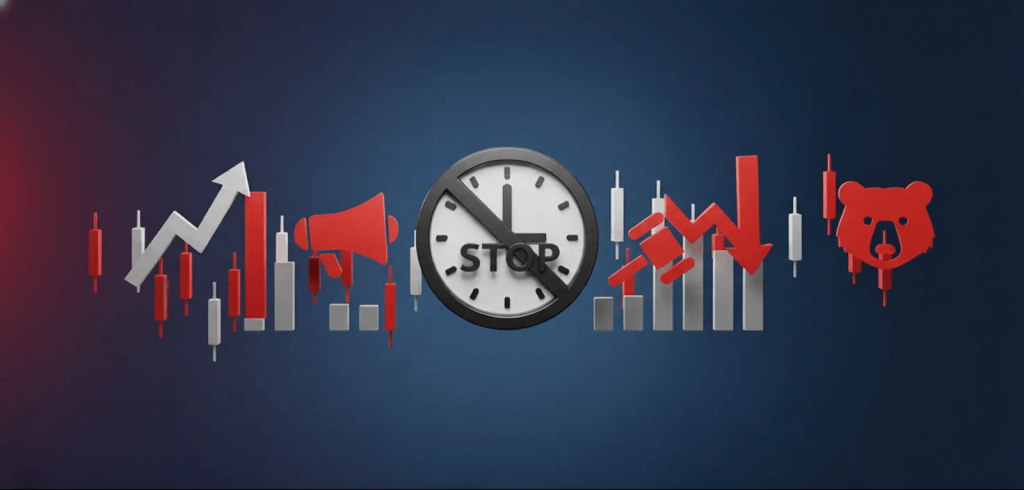
Broker-Dealer: ¿Qué es y cómo funciona?
Contenidos
En el cambiante mercado financiero, el término "agente de bolsa" surge con frecuencia, refiriéndose a una persona fundamental en el sector de la inversión. Al actuar como agente por cuenta propia y como intermediario al gestionar órdenes para clientes, el agente de bolsa desempeña ambas funciones. De importancia inigualable, este actor fundamental del mercado ayuda a garantizar la disponibilidad de valores para los inversores, facilita la liquidez del mercado y asiste en el proceso de determinación de precios. Este artículo pretende desmitificar las funciones y actividades del agente de bolsa, definir el estricto marco regulatorio en el que opera y, por lo tanto, explicar su lugar en el sistema financiero.
Entendiendo el aspecto del broker
En esencia, la función de un corredor de bolsa es facilitar las transacciones entre compradores y vendedores de valores. Los corredores tienen la difícil tarea de encontrar el mejor precio y garantizar una transacción fluida. Su gama de servicios abarca desde la ejecución de operaciones hasta la orientación y recomendaciones de inversión.
El servicio de corretaje va más allá de la simple facilitación de transacciones. Los corredores son estrategas, negociadores y asesores. Deben gestionar circunstancias de mercado complejas, comprender los objetivos de inversión de sus clientes y estar al tanto de la evolución del mercado y de los instrumentos financieros disponibles. Su propuesta de valor reside en la profundidad del asesoramiento y el conocimiento que brindan a sus clientes, así como en la ejecución de las operaciones.
Entendiendo el aspecto del distribuidor
Por otro lado, la parte distribuidora de un corredor de bolsa es la empresa que negocia valores para su propio cliente. Están dispuestos a comprar o vender activos, lo que proporciona la liquidez necesaria para los mercados y facilita la negociación continua de valores.
Las operaciones de los distribuidores exigen un sólido sistema de gestión de riesgos y un profundo conocimiento de las tendencias del mercado. Los distribuidores evalúan el estado del mercado con frecuencia, modificando su inventario y precios para controlar los riesgos relacionados con los valores y maximizar las fluctuaciones de precios a corto plazo.
Flujos de ingresos de los corredores-distribuidores
Los inversores, los reguladores y las propias empresas dependen de saber cómo generan ingresos los agentes de bolsa. El plan de negocios de un agente de bolsa incluye numerosas fuentes de ingresos que se combinan para construir una empresa lucrativa.
Comisiones comerciales
Las comisiones por operaciones son una de las formas más convencionales y directas de obtener ganancias de los corredores-distribuidores. Cobran a los clientes por realizar operaciones en su nombre. El tipo de activo intercambiado, el monto de la transacción y el nivel de servicio prestado influyen en estas comisiones. En los últimos años, ha habido una fuerte competencia para reducir o incluso eliminar los costos de operación de algunos activos. Aun así, especialmente para los corredores-distribuidores de servicio completo, las comisiones siguen siendo una importante fuente de ingresos.
Diferenciales entre oferta y demanda
Los márgenes de beneficio de los agentes de bolsa que se dedican a la creación de mercado suelen provenir del diferencial entre la oferta y la demanda, es decir, la diferencia entre el precio de compra (oferta) y el de venta (demanda) de los activos. Especialmente en la negociación de acciones, bonos y otros instrumentos que podrían no tener gran liquidez, podrían beneficiarse de este diferencial al proporcionar liquidez a los mercados.
Utilidades de suscripción
Los suscriptores participantes de las casas de bolsa compran valores de los emisores y posteriormente los ofrecen al público a un precio más alto, obteniendo así beneficios. Al gestionar grandes ofertas, como las ofertas públicas iniciales (OPI) o las emisiones de bonos, el margen de suscripción o el margen de suscripción entre el precio de compra y el precio de venta puede ser muy rentable.
Tarifas de gestión de activos
Las comisiones de gestión de activos generan ingresos para las casas de bolsa que prestan servicios de asesoría de inversiones. Estas comisiones, que suelen representar una proporción de los activos bajo gestión (AUM), se pagan por los servicios de gestión de cartera y asesoramiento en materia de inversiones. La estructura de comisiones puede variar; algunas casas de bolsa optan por una tarifa fija, mientras que otras pueden aplicar un sistema escalonado según el grado de control de los activos.
La gama y complejidad de los servicios prestados determinan, sobre todo, la rentabilidad de un corredor de bolsa. Quienes cuentan con una fuente de ingresos variada y carteras diversificadas suelen estar mejor preparados para resistir los cambios en el mercado y las leyes y regulaciones.
Regulación y Cumplimiento
Un estricto control regulatorio define el ámbito de los agentes de bolsa y garantiza la integridad de los mercados financieros, así como la protección de los inversores. Estas empresas están sujetas a un riguroso sistema de regulación que abarca todos los aspectos de sus actividades.
Organismos reguladores
A la vanguardia de este panorama regulatorio se encuentran dos instituciones críticas: la Comisión de Bolsa y Valores (SEC) y la Autoridad Reguladora de la Industria Financiera (FINRA). Creada durante la Gran Depresión, la SEC es el organismo federal encargado de supervisar el mercado de valores e implementar las leyes federales de valores. Sus objetivos principales son el desarrollo de capital, la protección de los inversores y la preservación de mercados organizados y eficientes.
En cambio, la FINRA es una empresa privada que actúa como una organización autorreguladora. La aplicación de normas sectoriales basadas en la integridad del mercado y la protección de los inversores contribuye a la gestión de las casas de bolsa. FINRA garantiza que las casas de bolsa, sus ejecutivos y sus empleados respeten los principios éticos y los requisitos legales en el sector de valores.
El cumplimiento como piedra angular
El cumplimiento normativo es absolutamente necesario para los agentes de bolsa; no es una opción. Las empresas deben seguir numerosas directrices sobre métodos de negociación, disponibilidad de capital, mantenimiento de registros y conducta ética. Mantener suficiente liquidez y proteger los activos de los clientes ayuda a los agentes de bolsa a garantizar que siempre puedan cumplir con sus responsabilidades financieras. La presentación periódica de informes financieros y la supervisión de un programa de cumplimiento por parte de un Director de Cumplimiento designado forman parte de esto.
Otro elemento esencial del cumplimiento normativo es el mantenimiento de registros. Durante un plazo determinado por las autoridades, los agentes de bolsa deben mantener registros exhaustivos de todas las transacciones y conversaciones con los clientes. Esto garantiza la responsabilidad y la transparencia, facilitando así las auditorías y evaluaciones de los organismos reguladores.
El propósito detrás de las regulaciones
El amplio sistema regulatorio que regula a los agentes de bolsa busca alcanzar varios objetivos principales. En primer lugar, busca garantizar el funcionamiento justo y eficaz del mercado de valores para que los inversores puedan basar sus decisiones en un conocimiento correcto. También busca frenar la manipulación del mercado, el fraude y otras conductas poco éticas que pueden socavar la confianza de los inversores y el funcionamiento de los mercados financieros.
Además, al garantizar que los agentes de bolsa controlen adecuadamente los riesgos, la regulación contribuye a mantener la estabilidad del mercado. Esto incluye el seguimiento de las mejores prácticas, la gestión adecuada de los fondos de los clientes y la reducción de los conflictos de intereses. Mediante estas medidas, la estructura regulatoria contribuye a la resiliencia y la solidez del sistema financiero en general.
Operaciones de corredores de bolsa
Las operaciones de los agentes de bolsa constituyen el motor del sector de la negociación de valores. Sus importantes funciones, en conjunto, contribuyen a garantizar la fluidez y la eficacia de los mercados financieros.
Incorporación de clientes y gestión de cuentas
El proceso operativo comienza con la incorporación del cliente, un procedimiento que se ve reforzado por las obligaciones legales de KYC (Conozca a su Cliente). Dado que las normas KYC implican la verificación de la identidad del cliente, el análisis del comportamiento financiero y la evaluación de riesgos de cualquier objetivo ilícito, incluido el blanqueo de capitales, son cruciales.
Los corredores de bolsa crean cuentas de clientes durante la incorporación, lo que facilita una colaboración a largo plazo. Esto implica la elaboración de perfiles financieros exhaustivos para personalizar los planes de inversión según las circunstancias personales. Una buena gestión de cuentas también implica una comunicación constante y una diligencia debida continua para garantizar que el corredor de bolsa se mantenga al día con las cambiantes circunstancias financieras y objetivos de inversión.
Ejecución y procesamiento de operaciones
El objetivo principal de la ejecución de operaciones se hace evidente una vez que las cuentas están activas. Entre el inversor y los mercados se encuentran los intermediarios. La función del intermediario es ejecutar de forma eficaz y precisa la orden que el cliente selecciona para operar. Esto implica el uso de sistemas tecnológicos de vanguardia para el enrutamiento de órdenes, garantizando así que las operaciones del cliente se realicen a tiempo y en las condiciones más ventajosas del mercado, también conocido como "mejor ejecución".
Suscripción y creación de mercado
Los corredores de bolsa también desempeñan un papel importante para ayudar a las empresas a generar financiación mediante la suscripción de nuevas emisiones de valores. Pueden asumir el riesgo de venta comprando valores directamente al emisor y revendiéndolos al público. Este enfoque no solo ayuda a las empresas que buscan capital, sino que también crea nuevas perspectivas de inversión en el mercado.
Otra función esencial de los corredores de bolsa es la creación de mercado. Los creadores de mercado aportan su propio efectivo para generar liquidez, por lo que compran y venden constantemente cotizaciones de los valores con los que desean operar. Especialmente para activos menos líquidos, esta actividad facilita una negociación fluida y consistente.
Eficiencia operativa y gestión de riesgos
Los corredores de bolsa deben implementar estrictas políticas de control de riesgos en todas sus actividades. Monitorear las circunstancias del mercado, controlar el riesgo crediticio y de contraparte, y asegurar que las acciones operativas se ajusten a la tolerancia al riesgo de la empresa y a los requisitos legales son aspectos importantes. Los inversores, sus clientes y el sistema financiero en su conjunto están protegidos por corredores de bolsa que practican una gestión de riesgos sólida.
El papel de la tecnología
En una época en la que la tecnología permea todos los aspectos de la vida humana, sus efectos en las operaciones de los corredores de bolsa son significativos y fundamentales. Además de mejorar los sistemas actuales, la revolución tecnológica transforma la forma en que los corredores de bolsa operan.
Plataformas de trading y trading algorítmico
En cuanto a la forma en que se ejecutan las operaciones, la tecnología lo ha transformado todo. Los sistemas de trading modernos ofrecen a los consumidores una interfaz intuitiva para gestionar sus carteras, realizar operaciones y acceder a datos del mercado en tiempo real. Con el trading algorítmico, que permite realizar transacciones a ritmos y volúmenes que superan la capacidad humana, esto ha avanzado. Mediante el uso de criterios predefinidos y el análisis de la situación del mercado, estos algoritmos pueden ejecutar transacciones según criterios predefinidos, garantizando así la eficiencia y reduciendo el riesgo de errores humanos.
Herramientas de gestión de riesgos
La gestión de riesgos, pilar de las operaciones de los corredores-distribuidores, se ha visto enormemente mejorada por la tecnología. Los sofisticados algoritmos incluidos en los productos modernos de gestión de riesgos pueden analizar enormes volúmenes de datos para detectar posibles riesgos antes de que se manifiesten. Estos instrumentos permiten a los corredores-distribuidores tomar decisiones fundamentadas para cubrir sus posiciones y salvaguardar las inversiones de sus clientes mediante la simulación de diversas condiciones de mercado y la previsión de resultados.
Servicios al Cliente y Gestión de Relaciones
La tecnología también ha transformado la atención al cliente de las empresas de corretaje. Los sistemas de Gestión de Relaciones con el Cliente (CRM) permiten mantener registros exhaustivos de los contactos, preferencias e historial financiero de los clientes. Esta recopilación de datos mejora considerablemente la experiencia del cliente, al permitir un servicio más personalizado y la capacidad de anticipar sus necesidades.
De cara al futuro, la tecnología seguirá redefiniendo el panorama de los corredores-distribuidores. La tecnología blockchain, por ejemplo, tiene la capacidad de prácticamente eliminar la necesidad de procedimientos convencionales de compensación y liquidación, lo que permite transacciones más seguras y prácticamente inmediatas. Análisis aún más profundos de la inteligencia artificial y el aprendizaje automático podrían ayudar a optimizar aún más los métodos de negociación y las técnicas de gestión de riesgos.
Desafíos que enfrentan los corredores-distribuidores
El entorno en el que trabajan los corredores de bolsa está plagado de problemas complejos y de diversa complejidad. Para afrontar adecuadamente estos desafíos, se requiere resiliencia, previsión y estrategia.
Volatilidad del mercado
Uno de los mayores obstáculos que enfrentan los corredores-distribuidores es la volatilidad del mercado. Afectada por diversos factores, como datos económicos, eventos geopolíticos y, ahora más que nunca, las tendencias en redes sociales, como se demostró ampliamente en el... Evento de GameStop en Reddit en 2021 Las fluctuaciones en los valores de mercado pueden ocurrir rápidamente y sin previo aviso. Los corredores de bolsa deben implementar sólidas técnicas de gestión de riesgos capaces de resistir cambios abruptos en el mercado. Mantener la estabilidad financiera y proteger las inversiones de los clientes depende de una rápida adaptación a las condiciones cambiantes del mercado.
Trastorno regulatorio
El entorno regulatorio para los agentes de bolsa está en constante evolución. A medida que se desarrollan nuevos productos y cambian los mercados financieros, las autoridades de todo el mundo actualizan e implementan periódicamente nuevas leyes para garantizar la integridad del mercado y la seguridad de los inversores. Los agentes de bolsa deben estar alerta y ser adaptables, adaptando sus actividades para cumplir con los requisitos legales. Esta constante adaptación exige una supervisión proactiva del cumplimiento normativo y puede requerir muchos recursos.
Disrupción tecnológica
Los corredores de bolsa deben mantenerse al día con los últimos avances en un sector en constante evolución bajo la influencia de la tecnología. Los avances tecnológicos pueden hacer que los métodos actuales queden obsoletos, y la velocidad con la que se lanzan nuevas ideas fintech puede ser abrumadora. Los corredores de bolsa con visión de futuro deberían invertir en tecnología escalable para el futuro y que satisfaga las demandas actuales.
Competencia y consolidación de la industria
Para los corredores de bolsa, el panorama competitivo se ha vuelto aún más hostil. Con la consolidación del sector, surgen empresas más grandes que se benefician de las economías de escala y, a menudo, pueden ofrecer una gama más amplia de servicios a un costo menor. Para los corredores de bolsa más pequeños, la innovación, la experiencia y un servicio al cliente de primera calidad se convierten en factores clave para mantener y ampliar su cartera de clientes.
Amenazas a la ciberseguridad
La ciberseguridad es quizás uno de los problemas más importantes que enfrenta la sociedad digital moderna. Debido a los enormes volúmenes de datos confidenciales y capital que manejan, los corredores de bolsa son blancos ideales para los ciberataques. Una sola filtración puede causar importantes pérdidas financieras, así como dañar la confianza de los clientes. Los corredores de bolsa deben realizar inversiones significativas en medidas de ciberseguridad a medida que los ciberataques se vuelven más complejos, mejorando constantemente sus defensas para protegerse contra las formas más recientes de ataque.
Eficiencia operativa
Los corredores de bolsa también deben aspirar a la eficiencia operativa para mantenerse competitivos. Para ahorrar gastos sin sacrificar la calidad del servicio, deben optimizar sus recursos y procedimientos. Esto suele implicar el uso de técnicas lean, la optimización del flujo de trabajo y la automatización de tareas laboriosas.
Expectativas del cliente
Finalmente, los agentes de bolsa deben lidiar con las expectativas siempre cambiantes de los clientes. Los inversores actuales buscan un servicio personalizado e inmediato y, en general, están mejor informados. Para atender a una base de clientes cada vez más experta en tecnología, los agentes de bolsa deben ofrecer una interfaz impecable y fácil de usar en diversas plataformas.
Conclusión
Arquitectos del entorno de inversión, los agentes de bolsa proporcionan canales para la circulación de capital y apoyan la expansión de los mercados financieros. Su doble función como agentes y corredores los sitúa en el centro del proceso de negociación de valores. Si bien se enfrentan a una compleja gama de desafíos, su agilidad y creatividad siempre contribuirán a definir las finanzas en el futuro. El mundo de los agentes de bolsa es una prueba de la compleja belleza de los mercados financieros, independientemente del nivel de interés: inversión, actividad profesional o simplemente curiosidad por las finanzas.
Actualizado:
18 de diciembre de 2024



